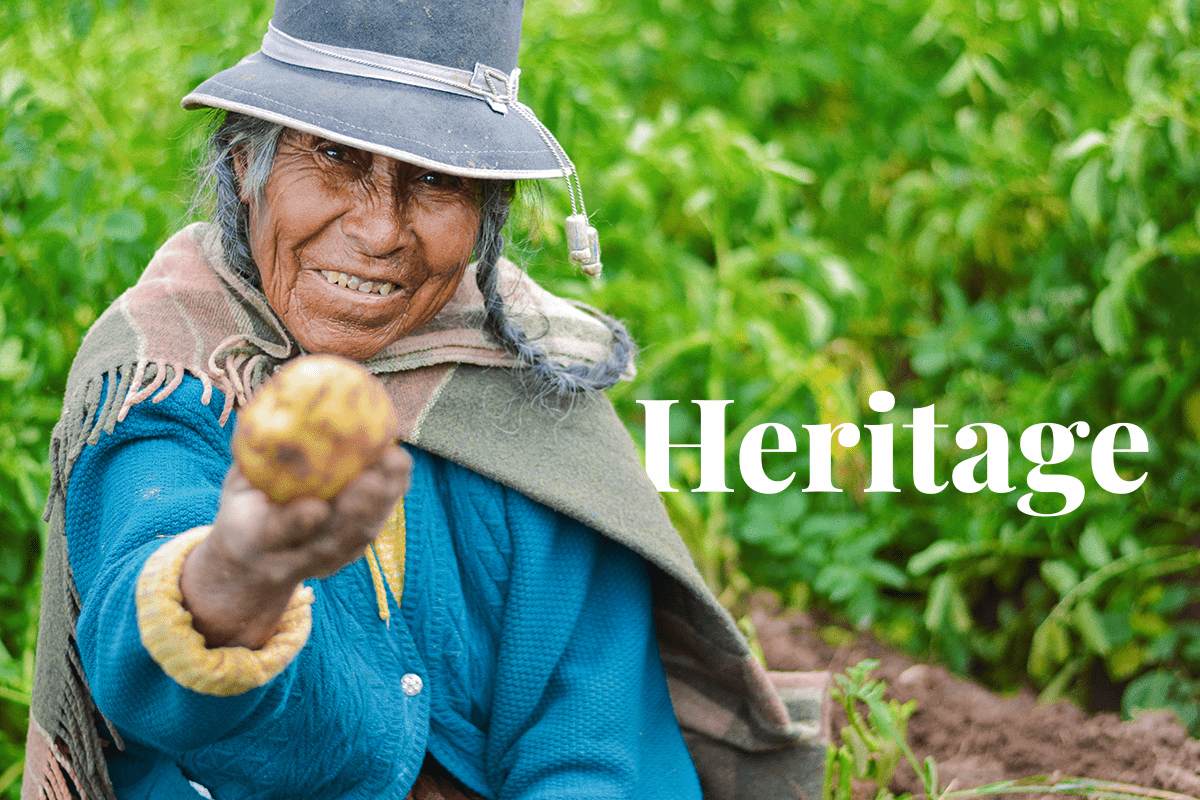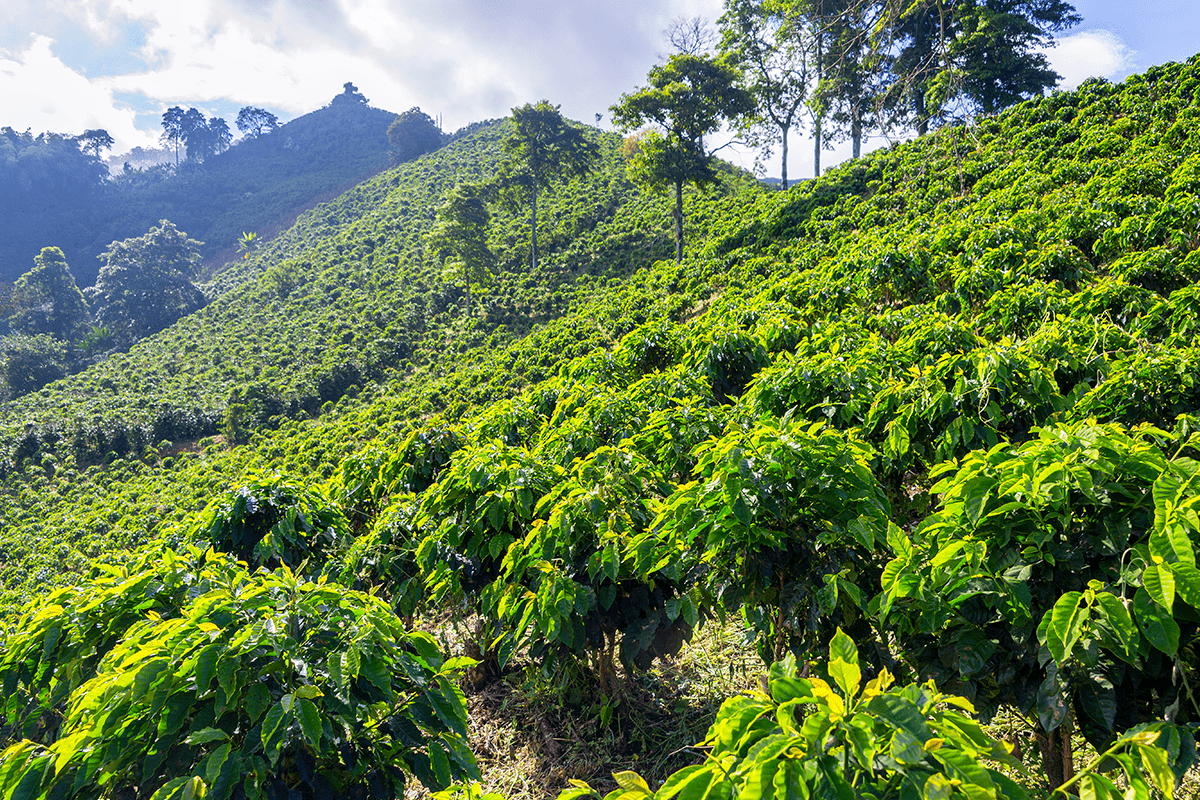Latin America is one of the world's most biodiverse regions, home to more than 40% of the world's plant and animal species. However, rampant deforestation, habitat fragmentation, and changing climates threaten this natural wealth. A new approach is needed to mitigate this loss—one that emphasises traditional conservation practices and the active involvement of local communities.
 Native American woman wearing authentic aymara clothes and showing fresh potato.
Native American woman wearing authentic aymara clothes and showing fresh potato.
Heritage
According to the Food and Agriculture Organization of the United Nations (FAO), indigenous peoples make up only 5% of the world's population. Yet, they manage 22% of the world's land and are the guardians of 80% of the planet's biodiversity.
The Latin American region is home to at least 522 indigenous communities ranging from Patagonia to northern Mexico, through the Amazon, the Andes, the Continental Caribbean, and Central America. Indigenous communities in Latin America have been practising sustainable land use and conservation techniques for centuries, long before the term ‘biodiversity’ was coined. These practices not only preserve the natural balance but also promote the wellbeing of the communities themselves.
Many indigenous populations live in remote areas that often contain rich biodiversity, where finding a balance with nature is essential to survive. As keen observers of the environment, these communities can link phenomena such as changes in climate conditions or the impact of new species on the evolution of the ecosystem.
This knowledge also allows for seasonal predictions. East African herder tribes can anticipate when and where it will rain by observing the flowering of trees and the behaviour of birds and insects. The observation of these biological indicators is carried out by explorers who travel the territory to determine where and when to move the herds. This traditional knowledge is not fixed. It integrates new phenomena affecting the environment. The First Nations of northern Canada observed that wolf packs changed their dynamics and predatory behaviour, leading to a decline in caribou herds.
In the Amazon rainforest, indigenous communities protect vast tracts of forest through their traditional land-use practices. They cultivate and harvest crops, such as Brazil nuts and cocoa, without clearing the forest. They also selectively hunt game to maintain ecological balance. As a result, the Amazon rainforest's biodiversity hotspots overlap with indigenous lands, indicating the effectiveness of these traditional conservation practices.
Science
Studies have shown that the presence of indigenous peoples in an area positively correlates with increased forest cover and reduced deforestation and carbon emissions. According to the World Bank, indigenous peoples manage or have tenure rights over 25–30% of the world's land surface, including some of the most important carbon sinks, such as tropical forests. These figures highlight the importance of these communities in protecting natural resources and agriculture.
The importance of traditional ecological knowledge to prevent further deterioration of the planet's biodiversity was recognised in the global assessment conducted by the United Nations´ Intergovernmental Science-Policy Platform on Biodiversity and Ecosystem Services (IPBES), published in May 2019.
Recognising the value of indigenous knowledge and practices, many countries in Latin America have started to adopt policies that empower indigenous communities in biodiversity conservation. For instance, the Brazilian government established protected areas and indigenous territories covering over 20% of the country's land area. These areas significantly reduce deforestation rates compared to non-protected areas.
 View of a coffee plantation near Manizales, Colombia.
View of a coffee plantation near Manizales, Colombia.
An integrative way forward
Companies in the carbon credits and biodiversity conservation sector are increasingly partnering with indigenous communities to develop forest carbon projects that generate revenues while protecting the forests. These partnerships ensure local communities benefit from conservation efforts while promoting sustainable livelihoods.
Indigenous communities in Latin America play a vital role in biodiversity conservation through their traditional practices and active participation in policy-making and conservation initiatives. Governments and organisations must recognise and support these efforts to achieve long-term sustainability and conserve the region's unique biodiversity for future generations.
DGB Group recognises the importance of engaging and collaborating with various stakeholders, including communities, to promote sustainable development and protect the environment. By involving communities in decision-making processes and incorporating their feedback, DGB can better understand and address the unique needs and concerns of each community. This not only fosters a more inclusive and equitable approach to development but also ensures that DGB's operations align with the long-term sustainable development of these communities. Additionally, involving stakeholders in planning and implementing environmental initiatives can help build trust, increase transparency, and promote responsible stewardship of natural resources. By prioritising stakeholder engagement, DGB can contribute to developing healthy, resilient communities and a more sustainable future.
DGB can help you integrate ecosystem restoration to become more sustainable


